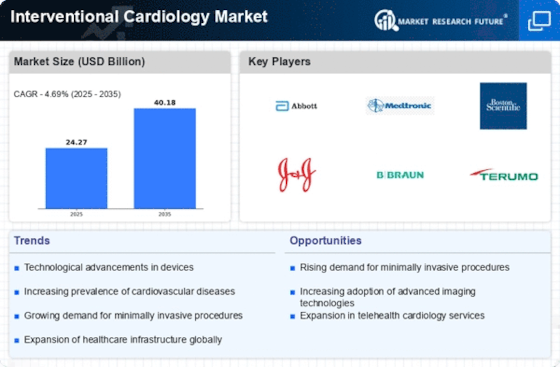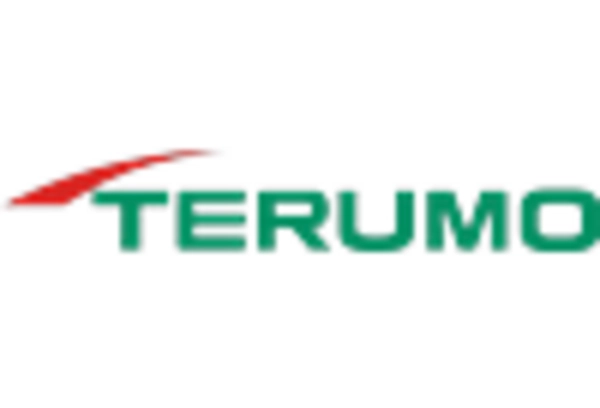Market Analysis
In-depth Analysis of Interventional Cardiology Market Industry Landscape
The global cardiovascular disease population affects the invasive cardiology market. Due to rising heart disease rates, more consumers prefer invasive cardiology tests, treatments, and devices. This alters the market.
Angioplasty, stent implantation, and transcatheter therapy influence the market. Improved techniques and technology make procedures safer and more successful. This affects market growth and acceptability.
The aging population greatly impacts markets. More invasive cardiac operations are needed because elderly persons have more heart issues. Market growth and age-specific solutions are influenced by this demographic trend. Not being active, eating badly, and being overweight increase cardiovascular disease risk. Invasive cardiology is growing due to these risk factors and the need for better treatment options. Minimally invasive therapies drive market transformation. Patient and doctor desire therapies that speed recovery and prevent issues. Minimally invasive technologies are shaping the interventional cardiology industry, leading to novel devices and procedures. New imaging technologies like intravascular ultrasound and OCT shift markets. Instead of imaging-guided therapies, real-time viewing improves invasive cardiac therapy. The shift to outpatient cardiac surgery alters the market. Compared to hospitals, these institutions are efficient and affordable. They simplify and lower the cost of invasive cardiac therapies. Healthcare legislation and reimbursement rules impact the market. New payment systems effect the adoption of new technologies and approaches, which changes how healthcare staff and clients make choices. The market is driven by patient expectations for non-surgical therapies. Because of its reduced invasiveness and speedier recovery, more individuals are choosing interventional cardiac procedures over surgery. Health care expansion alters markets. Medical tourism, partnerships, and global cardiovascular health efforts are making invasive cardiac procedures more accessible. Healthcare training and education affect the market. Interventional cardiologists continue their education to use the latest technologies and approaches. This impacts market growth and care quality. Innovative items like bioresorbable stents and tubing impact the market. New gadget advancements make invasive cardiac therapies safer and more effective, transforming the market. Increasing structural cardiac operations affects the interventional cardiology market. TAVR and LAAC address cardiac problems and develop the market. Medical device producers, healthcare institutions, and research organizations collaborate to transform the market. Partnerships enable research, technology, and novel invasive cardiac choices. COVID-19's impact on heart health and the subsequent growth in heart diseases damage the market. Expert invasive cardiac treatment for COVID-19 survivors drives market growth and transformation.


















Leave a Comment